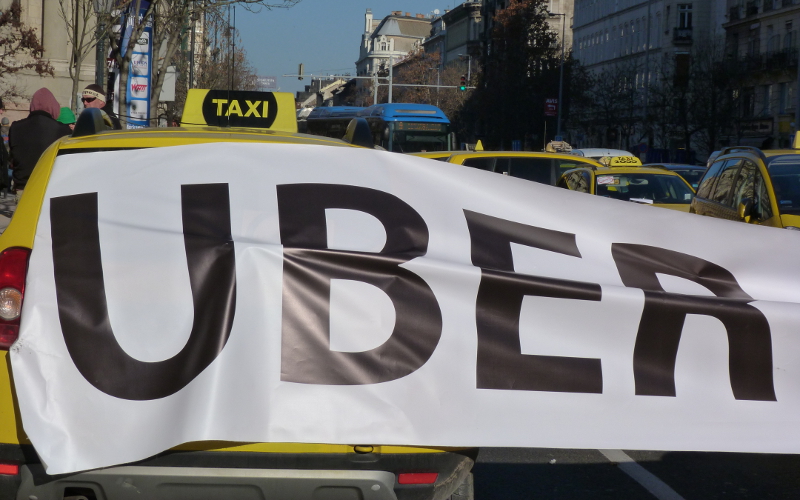“ONE OF A KIND”
by Guillermo Jimenez, ©2016, Tax Revolution Institute

(Sep. 5, 2016) — When will central-economic planners ever learn? In yet another attempt to influence the economic behavior of a given population through taxation, the state of Massachusetts has decided to subsidize their fledgling taxi industry with new fees on ride-sharing companies like Uber and Lyft.
These new taxes were signed into law by Governor Charlie Baker (R-MA) in early August and levy a 20-cent fee on each trip consumers take with a ride-sharing app. Ten cents will go to the municipalities while the other 10 are split between a state-transportation fund and the taxi industry.
The state law is one of a kind, and in the worst way possible. So far, according to Reuters, no other state has yet attempted to prolong the slow death of their respective taxi industries by showering them with subsidies gained by taxing their competitors.
Not only do these taxes literally take money from ride-sharing companies and hand it to taxi businesses, the law is explicitly designed to help taxis compete in a market that has passed them by. The law states that the revenue gained through this tax aims to help taxis develop “new technologies and advanced service, safety and operational capabilities and support workforce development.”
But have no fear local consumers, Massachusetts lawmakers say you’ll never actually see this new fee on your ride-sharing bill because their super-well-thought-out law bans these companies from expressly charging you the toll.
Well, as any economist will tell you, that’s not how this stuff really works. Since ride-sharing companies can’t very well print the $5 million this tax will cost them annually in Boston alone, the cost will inevitably be passed on to consumers, as Fasten Chief Executive Kirill Evdakov rightly pointed out to Reuters.
Fasten is a ride-sharing app that operates in Boston and Austin, Texas. Eydakov believes it’s wrong for his company to be forced to subsidize potential competitors. And can you blame him?
Although the move to protect the taxi industry from the likes of Uber and Lyft through regulation at the local, state, and even federal level in some parts of the world, is nothing new, this Massachusetts tax law takes it to unprecedented heights. As Institute for Justice Communications Associate Nick Sibilla writes in Forbes, Massachusetts is “creating a real-life version of the Handicapper General” with this tax.
And while this may all be enough to make Kurt Vonnegut roll over in his grave, it’s worth noting that taxi owners in the state wanted the law to go even further. And can you blame them?
Letting go of a state-run monopoly is hard, let alone one that’s been held since the Great Depression. Michael Farren, a research fellow with the Mercatus Center at George Mason University, makes the point in US News that taxi regulations are the “textbook example of how laws can restrict competition and grant monopoly-like power to existing companies.”
That said, there are a number of examples of regulations passed throughout the country that seek to “level the playing field” for all drivers and have still managed to appease both taxi and ride-sharing companies. The “Uber tax” in Massachusetts doesn’t come anywhere close to that, and instead creates a carve-out that is specifically designed to favor one service over the other.
Is that what the tax code is — at any level — supposed to do?
There may be other egregious examples out there of how our tax laws currently lack neutrality and fairness, but it’s hard to top what Governor Baker just pulled off in Massachusetts.

